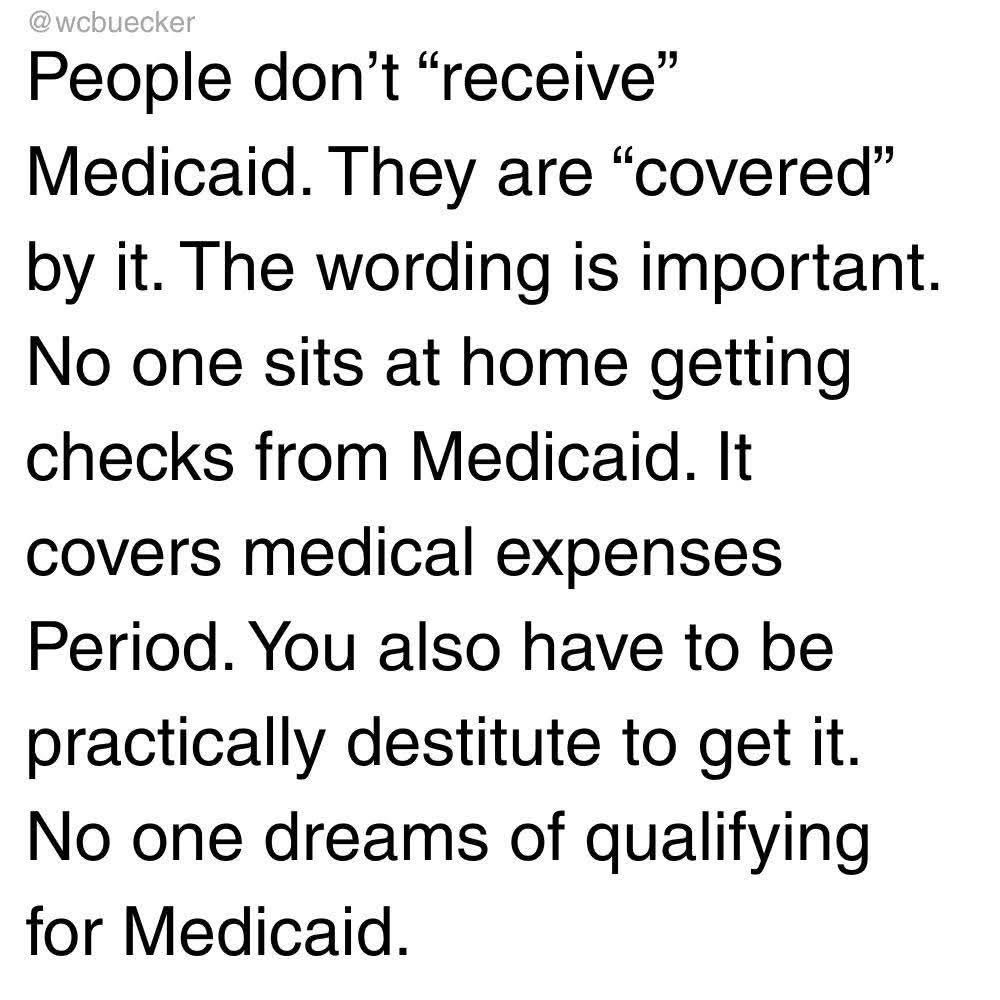Fact-Check Summary
The meme correctly states that Medicaid is a health coverage program, not a cash assistance program—recipients do not receive direct payments or checks from Medicaid. Eligibility is indeed linked to low income and limited assets, but the characterization of Medicaid as only available to the “practically destitute” is an exaggeration. States vary in their rules, with many allowing individuals at or near the federal poverty level, and some offering additional paths (like spend-down provisions) that do not require complete impoverishment. The assertion that “no one dreams of qualifying for Medicaid” is an opinion and cannot be empirically verified. Overall, the meme is generally accurate about Medicaid’s function, but it simplifies eligibility standards and injects subjective judgment about public attitudes.
Belief Alignment Analysis
Evaluating the meme through a democratic, inclusive lens, we see some alignment with the values of transparency and fairness: it seeks to clarify what Medicaid does and dispel misconceptions about how government aid is distributed. However, the meme’s language risks fostering stigma by equating Medicaid qualification with extreme hardship and implies a cultural undesirability that may perpetuate division or discourage use of social safety nets. True democratic values are best served when access to health care is framed as a right for all people, not a mark of failure. Public discussion about Medicaid should empower and inform, not alienate or shame vulnerable populations. Clarity about the program is good; framing participants negatively is not.
Opinion
Medicaid is a vital pillar of the United States’ commitment to public well-being, offering a safety net to diverse groups in need. While eligibility is linked to low income and limited assets, describing all recipients as “practically destitute” is both misleading and unnecessarily pejorative—many working families, seniors, and people with disabilities benefit from Medicaid even as they contribute to their communities. Shaming those who need or use Medicaid undermines social trust and weakens solidarity around the foundational belief that America belongs to all its people. Discussions of public programs must avoid stigmatizing language in favor of facts and compassion.
TLDR
Medicaid does not send checks to recipients; it directly covers medical expenses. Eligibility is restricted to low-income households, but not limited to the “practically destitute”—state rules allow for nuance and flexibility. Public perception of Medicaid varies, but dismissive or shame-driven language distorts its value as a core component of America’s safety net.
Claim: The meme asserts that Medicaid covers medical bills, not by sending cash, is only for those who are very poor, and that nobody aspires to enroll in it.
Fact: Medicaid indeed pays for approved health care services directly rather than issuing cash to enrollees. While eligibility requires low income and assets, exact thresholds are nuanced and vary by state; the “practically destitute” characterization is inaccurate for many recipients. The opinion that “no one dreams” of qualifying for Medicaid cannot be verified and is a value judgment rather than a factual statement.
Opinion: Medicaid is essential infrastructure supporting Americans in need, and clarity about its role serves the public interest. However, language that shames recipients or discourages them from necessary health care is counter to democratic values of inclusion, fairness, and equal dignity.
